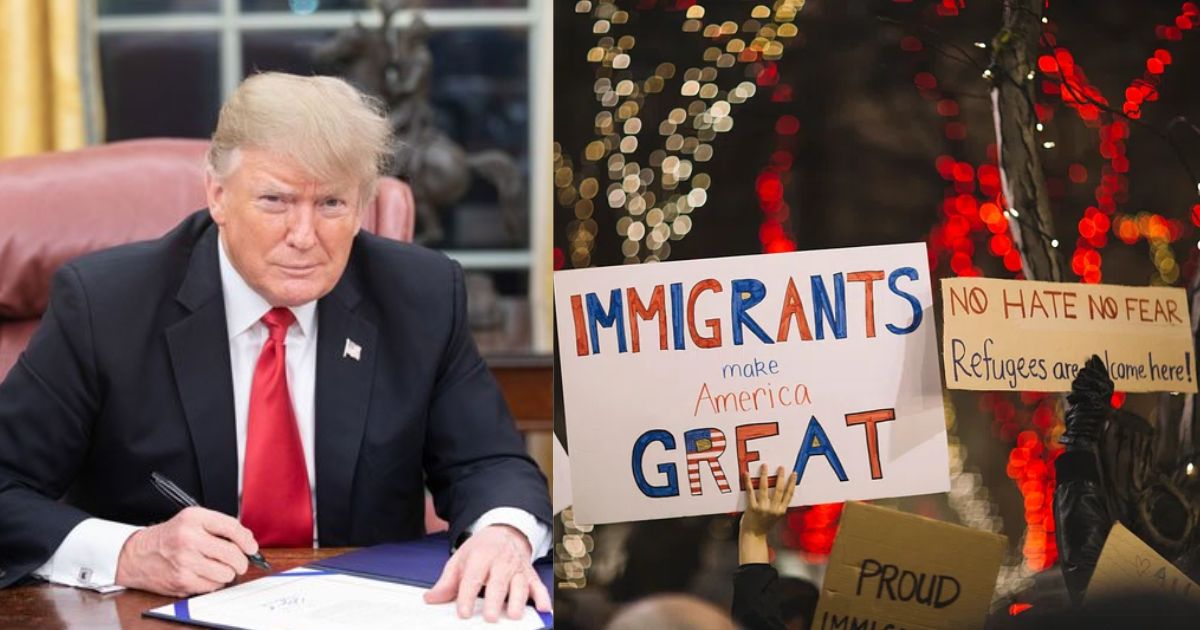When Donald Trump returned to office in 2025, he rolled out several executive orders, including a massive immigration crackdown. Trump launched the “largest deportation” campaign in U.S. history. Since America has one of the largest immigrant populations, these deportations aren’t unique. Former president Joe Biden also carried out deportations, with 271,000 immigrants deported to 192 countries in fiscal year 2024.
However, what’s concerning is the fact that under Donald Trump’s mass deportation goals, enforced disappearances of immigrants have become increasingly common. Venezuelan asylum-seeker Frizgeralth de Jesús Cornejo Pulgar failed to attend a routine immigration hearing in America on May 30, 2025.
View this post on Instagram
Not because he missed it but because he had already been secretly deported to El Salvador’s notorious CECOT prison alongside 230 other Venezuelans. As per a report, advocates and legal authorities warned that these disappearances are a serious human rights violation under international law.
For those confused about the concept of enforced disappearances, according to the United Nations, an enforced disappearance happens when a person is secretly abducted or detained by state agents, and the state then refuses to acknowledge their whereabouts. These immigrants are often sent to dangerous foreign places and denied basic rights.
View this post on Instagram
As per reports, these disappearances are tactics used by past authoritarian regimes, from Pinochet’s Chile to Argentina’s Dirty War and Syria under Assad. What’s more terrifying is that the Trump administration has coordinated these deportations with Salvadoran authorities despite legal orders blocking many of them. Venezuelan immigrants, in particular, are being targeted with vague or unproven gang association charges.
For instance, the vice president, JD Vance, criticized the character of Kilmar Abrego Garcia, a Maryland man on Fox News who was detained by Immigration and Customs Enforcement (ICE), was accused of being connected to the violent MS-13 gang, and was incorrectly deported to El Salvador.
View this post on Instagram
Vance claimed that Garcia was an MS-13 member and had “zero right” to remain in the U.S. However, according to HuffPost, the truth is far more disturbing. In 2019, an immigration judge granted Kilmar Abrego Garcia “withholding of removal” due to the danger he faced in El Salvador.
https://www.youtube.com/watch?v=r228Wcrzi8U
Despite having no criminal record, being married to a U.S. citizen, and caring for a disabled U.S.-born child, Garcia was unexpectedly detained while picking up his son from school. Garcia’s wife said that she was unable to contact her husband and was very worried about him until she saw Trump’s orders about deportation flights on television.
Meanwhile, the Trump administration later admitted that deporting him was an “administrative error,” even after a federal judge ordered the plane to be turned around—an order that was blindly ignored. Consequently, Donald Trump’s enforced disappearances have left people in fear and erased individuals from legal protection.
So what can people do about it? According to sources, experts say that it all comes down to visibility. It’s important to keep the names in the public eye, demand accountability from the government, and carry out protests and rallies dignifiedly (like in Los Angeles).
Due to Donald Trump’s ruthless governance style and retaining a planned and proficient PR image, it’s hard to deflect that notion. Still, collective public pressure should bring out a lot of answers.
The BBC reported that there is an assessed backlog of 3.6 million cases in US immigration courts, and migrants often have to wait for several years with no certainty. In addition, the “Migrant Protocol Policy, aka Remain in Mexico,” policy from Trump’s first term, which was a scheme for a crackdown on illegal immigrants and asylum seekers, impacted around 71,000 people.
Lately, discussing Donald Trump’s latest feather to his hat full of drama surrounding enforced disappearances, Adam Isacson of the Washington Office on Latin America notes, “We have no guarantee these people are even alive. That should terrify all of us.”









